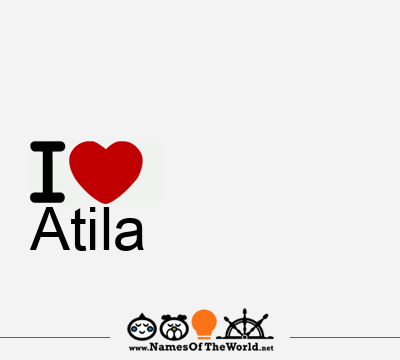Atila, Atila name, meaning of Atila
Information about the name Atila
- Etymology of the name Atila.
- History of the name Atila.
- Pronunciation of the name Atila.
- Turkic/Gothic Origin (the most widely accepted theory):
-
- If derived from atta/ata, Attila could mean “little father” or “little father,” which could be interpreted as “great leader” or “venerable chief.”
- If derived from at (horse), it could mean “little horse” or “little horse,” which would make sense given that the Huns were skilled riders and the horse was central to their culture.
- Hungarian/Magyar origin (less likely):
- Slavic Origin (unlikely):
- Leadership and Power: Attila was a formidable military leader who forged an empire and terrorized Rome. The name, therefore, is associated with leadership, strategy, and authority.
- Strength and Determination: The figure of Attila is synonymous with unstoppable force and an unwavering will to conquer and dominate.
- Fear and Destruction: Sadly, history also remembers him for the devastation he wrought, earning him the nickname “Scourge of God.” This connotation of destructive power is also part of the collective imagination associated with the name.
- Charisma and Unity: Despite his reputation, Attila managed to unite diverse tribes under his leadership, suggesting charisma and an ability to inspire loyalty.
Classified in:
Origin and meaning of the name Atila
The name Attila immediately conjures up the image of a powerful and feared historical figure: Attila the Hun, the “Scourge of God.” Steeped in history and an aura of strength and leadership, this name has a fascinating origin and a meaning that has been the subject of debate among historians and linguists.
Origin of the Name Attila
The name Attila comes from Hunnic, a Turkic or Altaic language spoken by the Huns, a nomadic people who invaded Europe in the 5th century AD and established a vast empire.
Although the figure of Attila is well known, the exact meaning of his name is not clear, and there are several etymological theories:
The most widely held theory suggests that Attila is a diminutive of a Turkic or Gothic word. It is believed to derive from the Gothic atta (father) or the Turkic ata (father) or at (horse), combined with the diminutive suffix -ila or -illa.
Some have attempted to link the name to Hungarian, given that Attila is an important figure in Hungarian mythology and history. However, this connection is less etymologically sound.
Other minority theories link it to Slavic languages, but lack significant linguistic support.
Despite the various theories, the interpretation of “little father” or “great leader” best fits the image of Attila as the unifier of the Hunnic tribes and the leader of a vast empire.
Meaning of the Name Attila
Beyond its precise etymology, the name Attila has acquired a very strong cultural and symbolic meaning over the centuries, primarily due to the historical figure of Attila the Hun.
Connotations associated with the name Attila include:
Today, the name Attila is uncommon in many Western cultures due to its strong connection to the historical figure and the connotations of aggression. However, in some regions, especially Hungary and Turkey, where Attila is seen more as a national hero or a glorious ancestor, the name is still used and appreciated for its strength and connection to a glorious past.
In short, the name Attila is of Hunnic origin, probably Turkic or Gothic, and its etymology suggests “little father” or “great leader.” Although historically associated with conquest and destruction, it also evokes qualities of leadership, strength, and unwavering determination. It is a name with a rich history and lasting cultural impact.
Image I Love Atila
